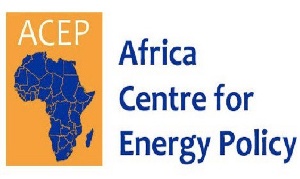The Africa Centre for Energy Policy (ACEP) wants government to halt construction of the Tema Liquefied Natural Gas (LNG) project due to a potential risk of US$820million in liabilities per year to Ghana National Petroleum Corporation (GNPC) when completed.
It says the LNG regasification facility, currently under construction to receive gas from Gazprom’s Gas Sales Agreement (GSA) with GNPC, requires immediate suspension in order to avoid risk liabilities to the state-owned oil company and to protect domestic gas resources.
In its analysis of the 2020 Budget Statement, the energy think-tank says new gas discoveries present additional domestic sources that render external sources irrelevant.
“Additionally, commitments to LNG distort government’s push for aggressive upstream exploration activities, as domestic gas discoveries stand the risk of becoming stranded,” it said in a statement to the B&FT.
Given the costs of importation for LNG and Ghana’s current domestic gas supply volumes, ACEP says the country needs to focus on reducing rather than accumulating more debts through the importation of LNG.
“The government of Ghana needs to suspend construction of the LNG facility at Tema and rather focus on optimisation of domestic gas,” the statement signed by its Executive Director, Benjamin Boakye, added.
Government in the 2020 Budget, indicated its desire to cancel LNG projects under negotiation and to place a moratorium on future procurements of LNG. This, according to ACEP, is a recognition of the fact that available domestic gas is enough to meet demand in the short- to medium-term.
It therefore advised government to, as a matter of urgency, suspend construction of the Tema LNG meant to receive gas from Russia’s Gazprom.
Gazprom, a subsidiary of Gazprom Marketing & Trading Group, signed a 12-year deal to supply GNPC with liquefied natural gas in September 2017.
LNG supplies from the deal were expected at the start of this year.
The agreement was the first stage in a planned series of partnerships between Gazprom and GNPC, as both companies are expected to develop the infrastructure and services required to manage and market the projected gas flows.
However, two years into the deal, Ghana has discovered gas resources which can meet its short- to medium-term needs.
Currently, the country’s gas reserves from Jubilee Field are estimated at 490 Billion cubic feet (Bcf); TEN field has associated gas reserve of 363 Bcf, while Sankofa Gye Nyame has non-associated gas reserves of 1,107 Bcf.
When finally developed, the Mahogany and Teak discoveries will also give the country a total of 120 Bcf, exclusive of the discoveries made by Aker energy at the Pecan Fields – with several others yet to be explored.
See Also: Over US$100m lost to cyber fraud in two years It is because of this that ACEP believes that government must halt the development of infrastructure under the Gazprom deal.
ACEP’s fear is also born out of the fact that imported gas is not only costly but could distort development and utilisation of domestic gas resources.
It also has the potential of putting undue pressure on the already-burdened domestic currency.
Business News of Monday, 9 December 2019
Source: thebftonline.com













